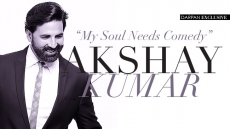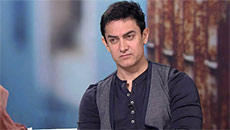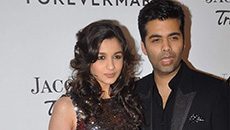Last September, major controversy surrounded India’s submission to the Academy Awards. The favourite, ‘The Lunchbox,’ was sidelined by the local Film Federation in favour of a safer alternative, ‘The Good Road.’ The decision triggered all kinds of complaints, as ‘The Lunchbox’ was seen as a very likely Oscar contender. Considering India has scored nominations only three times in 85 years, to marginalize a favourite was divisive, to say the least.
The debate that ensued is representative of an industry divided against itself: ‘The Good Road’ was integrally financed by the National Film Development Corporation, a government office. Road tackles issues often seen in Bollywood dramas, like kids in situations of risk in rural India. Variety’s appreciation of ‘The Good Road’ is quite damning: “India’s controversial Oscar submission is a confounding mixture of skill and awkwardness, visually accomplished but often dramatically inert.”
In turn, ‘The Lunchbox’ is filled with portraits of social malaise caused by high speed development. The movie was produced by the de facto leader of New Bollywood, Anurag Kashyap and has participated in all of the main film festivals this year, including Cannes, Toronto and London. The Irrfan Khan-starring drama also scored North American distributors, Sony in the US, Mongrel in Canada. Their plan is to open the movie beyond the usual niche markets this March.
The writer/director of ‘The Lunchbox’ is Ritesh Batra. Before developing the feature, Batra had only directed shorts, some inspired by the Arab Spring and its consequences. His body of work earned him enough awards to get noticed. Batra was vocal against the Film Federation decision. So much so, he had to publicly apologize as the war of words escalated. DARPAN Magazine had the opportunity to sit down and chat with Ritesh, the newest face of new Bollywood.
Q: In order to make this movie, I understand you joined a lunchbox service.
A: Originally, my intention was to make a documentary about dabbawalas. This is an ancestral profession. There are over 5,000 delivery men in Mumbai alone who provide this service. They take pride in what they do, so you can’t just go in and work with them. I did spend a few days with a group and we became friends – I put them all in the movie.
Q: Before embarking in your first feature film, you made a number of shorts. Was there anything you weren’t expecting in the transition to features?
A: The mental stamina it takes to remember it all and be articulate about it. As a director, you have to keep things straight for yourself and everyone else. You don’t have the luxury to shoot in sequence, so the actors are looking at you to know the temperature of the performance.
Q: Irrfan Khan is perfect for the part. How did you get him, considering this is your first movie and he is highly in demand?
A: There is so much in the story that’s left unsaid. I thought Irrfan was the perfect person to convey emotions that are never openly discussed.
Q: Considering you shot a portion of the film on the streets of Mumbai, how logistically challenging was that to do?
A: Shooting in the train was difficult. We had a compartment in a regular commuter train and we never had enough extras. Security was in place, but in the end we were letting people in to fill the frame. The priority was to protect the emotion of the scene. In one occasion, we had to cut our day short because there were riots at the terminal station. We had these famous actors with us and we had to step out midway through. But you have to embrace the chaos of the city.
Q: How do you perceive Indian cinema is evolving?
A: It’s the beginning of a movement. We need to be aware of what we are saying about India today. It must be something truthful. We have to understand a movement doesn’t happen because of a few films. It depends on a bigger audience willing to watch them. Batra’s next film will be another drama set in Mumbai, this time between a photographer and his muse. “If The Lunchbox was about love, Photograph is more about lust,” clarifies the filmmaker. Batra was also handpicked by the Bill Gates Foundation and the Sundance Institute to create a short about a shoe-shiner hoping to become a chef. Food-themed dramas and the filmmaker seem to be a natural match.
Photo: Wire Image/Getty, Sony Pictures Classic




